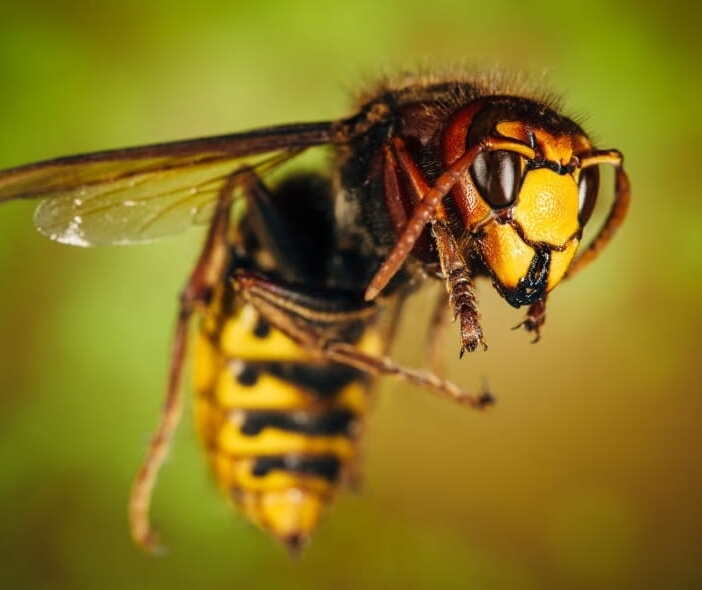About
Bees and wasps can be troublesome, but may also cause damage to your home if they are nesting in wall or ceiling cavities. This could result in costly repairs if left for too long. Wasps in wall or ceiling cavities can eat at the plaster and sometimes break through. If you suspect that you have a nest or hive on your property don’t risk being stung. Stay clear of the area and call Command Pest Control immediately. Our technicians wear personal protective equipment to ensure that they do not get stung. We will eliminate the wasps / bees ensuring to keep your family and pets safe.
As bees play a part in every aspect of the ecosystem, at Command Pest Control we encourage clients to call your local Apiarist before calling us to see if they can collect the hive.
Tips to Avoid Stings
Bees and Wasps can become aggressive and sting if they are threatened or disturbed. You can try to avoid being stung by:
- Stay Calm – if there are wasps or bees nearby, don’t panic and move away slowly.
- Avoid bright coloured or flower printed clothing.
- Don’t wear sweet smelling perfume, lotions or hair products.
- Cover food when eating outdoors.
- Pour canned or bottled drinks into cups so that you can see if an insect is swimming in your drink.
- Don’t walk around barefoot.
- Don’t swat at bees or wasps. This may be easier said than done. If you gently brush them away or wait for them to leave on their own they will not become threatened.
Let Command Pest Control treat your Bee or Wasp problem.
Call 0452 123 153 Now

Facts about Wasps
Wasps can sting over and over again.
Wasp venom contains a pheromone that cause other wasps to become more aggressive.
Wasps make their nests from paper. They chew up strips of bark and spit it out again to form a rough paper.
A queen starts a new colony each Spring. A colony can grow to 50,000 wasps in one summer.
Facts about Bees
Bees have 5 eyes and 6 legs
Honey bees fly at a speed of around 25 km/ph and beat their wings 200 times per second
A queen bee can lay up to 2500 eggs a day during Summer
A bee produces about a teaspoon of honey (5 grams) in their lifetime
Difference between European Wasps & Honey Bees
BODY – bees have a rounder body that usually appears hairy. Wasps are usually slender and smooth.
STINGER – After a sting, a bees stinger is pulled from its abdomen and the bee dies. Wasps stingers remain in tact and they sting readily and repeatedly.
LEGS – Bees have hairy legs whereas wasps legs have few hairs
FOOD – Most bees use pollen and nectar as a food source. In general, wasps eat nectar, fruit, honey, small insects and plants.

Facts about Wasps
Wasps can sting over and over again.
Wasp venom contains a pheromone that cause other wasps to become more aggressive.
Wasps make their nests from paper. They chew up strips of bark and spit it out again to form a rough paper.
A queen starts a new colony each Spring. A colony can grow to 50,000 wasps in one summer.
Facts about Bees
Bees have 5 eyes and 6 legs
Honey bees fly at a speed of around 25 km/ph and beat their wings 200 times per second
A queen bee can lay up to 2500 eggs a day during Summer
A bee produces about a teaspoon of honey (5 grams) in their lifetime

Contact us
Wasp and Bees around the home create an immediate hazard, which is why effective removal and treatment is so important.
Address
Thompsons Road, Templestowe Lower 3107
info@commandpest.com.au
Phone
0452 123 153
Working Hours
Mon To Fri 8am - 5pm
Sat & Sun as required
